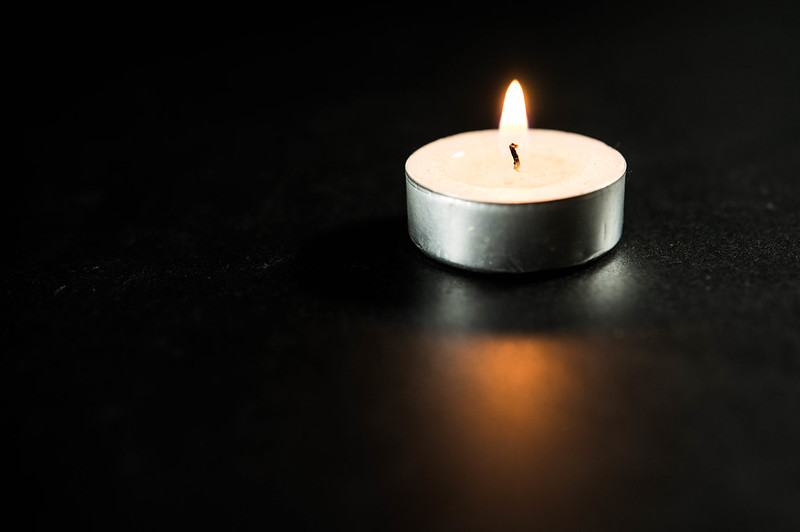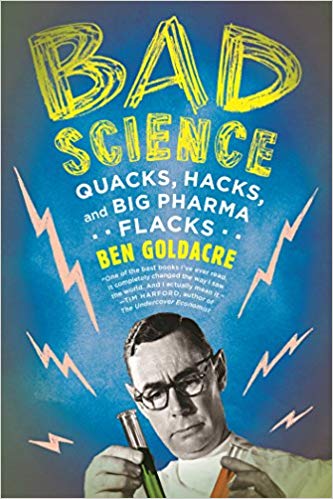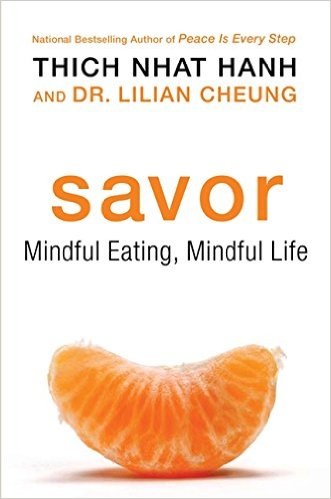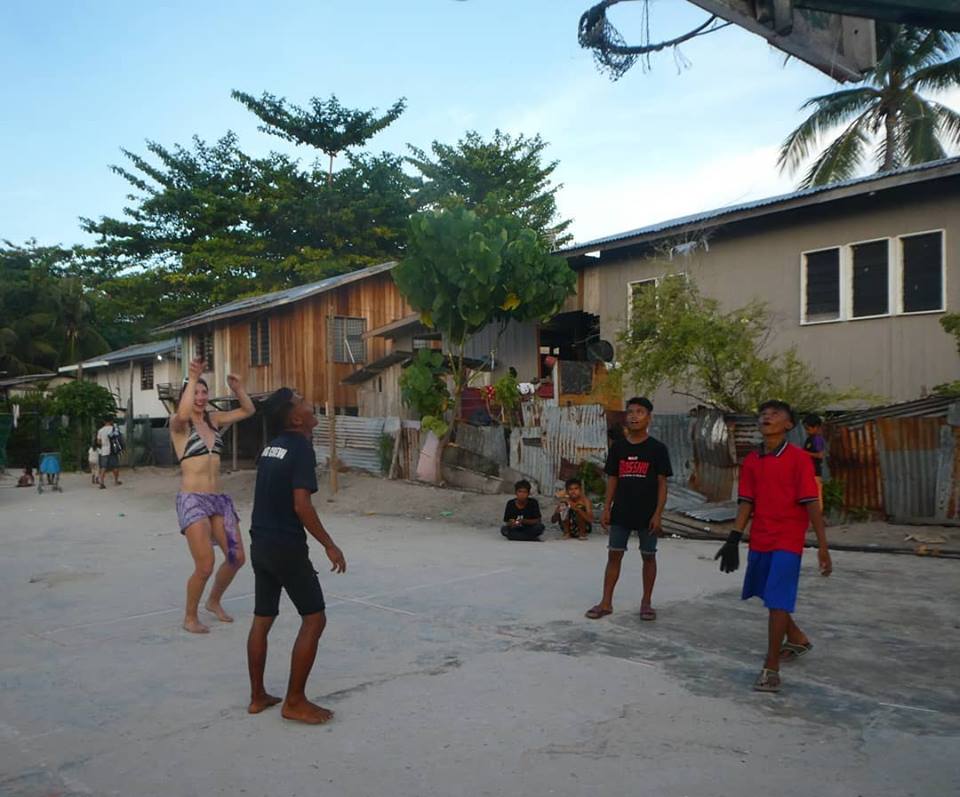|
"All disease," some antivaxxing dumbass who, apparently, is writing a book about his amazing perspective and incredible life experiences, "comes from a toxic mindset and bad lifestyle choices."
"Right," I replied. "And the woman who runs marathons and does yoga every day and eats kale who still gets cancer...?" "There is something wrong in her mind. Maybe she has a bad marriage or something." I shit you not. There really are people in the world who are that dumb. This is why novelist Jessica Knoll's New York Times Opinion piece, "Smash the Wellness Industry," caught my attention. Since many of you may find this article behind a paywall, let me pass on some key excerpts. A few months ago, I had lunch with the writer behind one of my favorite movies of the year, the agent who made the deal and the producer who packaged the project. I wanted to hear all about the process and perhaps find an opportunity to collaborate. When the server came to take our order, I flashed to that scene in “Romy and Michele’s High School Reunion” when Mira Sorvino walks into a diner in a striped skirt suit and asks the waitress, “Do you have some sort of businesswomen’s special?” Good point. I can't even imagine being in a place where I would go out to eat with an incredible group of accomplished women and start whining about my body or sharing the mundane details of my pseudoscientific diet. When I get together with female friends, acquaintances, or professionals, none of us are so self-obsessed that we sit around analyzing our flaws instead of talking about something interesting, like investing, hockey, human rights, travel, current events, or, you know, the matter at hand. If we talk about "wellness"-related bullshit, it is only to make fun of antivaxxers and people who think GMOs are somehow "bad." The article continues: I called this poisonous relationship between a body I was indoctrinated to hate and food I had been taught to fear “wellness.” This was before I could recognize wellness culture for what it was — a dangerous con that seduces smart women with pseudoscientific claims of increasing energy, reducing inflammation, lowering the risk of cancer and healing skin, gut and fertility problems. But at its core, “wellness” is about weight loss. It demonizes calorically dense and delicious foods, preserving a vicious fallacy: Thin is healthy and healthy is thin. It's funny, isn't it? What she is describing is what I would call "weight loss" or "fad diets" or "dieting." How did "wellness" become conflated with these terms? How were smart women lured in by pseudoscience? A lot of this is explained in Bad Science: Quacks, Hacks, and Big Pharms Flacks, by Ben Goldacre, an incredible read for both scientists (because Ben Goldacre does an incredible job explaining why so many people don't "get" things like the scientific method, and outlining better ways to communicate with them) and non-scientists (because he covers a lot of material in a way that is easily understandable, and supports everything he says with examples and evidence). Basically, it's really easy, especially with regulations in the US being what they are, to make a smart-sounding, valid-sounding claim that has no basis in reality. It's really easy to sell a "homeopathic medicine" that contains exactly 0% of the supposed "active ingredient. Moreover, even the best thinkers are prone to cognitive biases, like the confirmation bias and magical thinking. I hate bullshit "wellness" claims like I hate "fortune tellers" and "psychics" who prey on widows and other emotionally vulnerable people to scam and exploit. That said, "wellness" is a real thing, and for a huge number of health outcomes, thin is healthier than fat. Yes, you can be fat and healthy, and you can be thin and unhealthy, but obesity is known to cause all kinds of health problems and excessive death. The next few paragraphs interested me: Thanks to a stint at a health magazine, I had a glancing understanding of the philosophy, which encourages a return to the innate wisdom we had as babies — about when to stop eating, what tastes good and how it makes our bodies feel. I might have sought it out sooner if not for the part where you learn to accept how your body looks once you stop restricting food, even if that version of your body is larger than you would like. It reminded me of something -- several things, actually -- that I read in The Dorito Effect: The Surprising New Truth About Food and Flavor. For example, Mark Schatzker writes that scientists used to think that, due to evolution, humans are calorie zombies. We want to eat as much high-fat, high-calorie food as possible... But that is definitely not true. As stated in The Dorito Effect: Fine restaurants feature trim diners, a good deal of whom do not seem to be in it just for the calories. They order small pieces of raw oily fish that, it just so happens, feature brain-healthy omega-3s. They relish just-picked asparagus, say, or sauteed langoustine next to pearly drops of emulsified oyster sprinkled with crumbled seaweed. As they eat these expensive small portions, they do not sit there silently fending off cravings for stuffed-crust pizza and bottomless Dr. Pepper. Another tidbit, which I shared in Why Connoisseurs Love Itchy, Burning Throats - The Science of Flavor, is that "acquired tastes" exist for a reason. There is a good reason for us to love beer, even though many teenagers and young adults gag the first time they try it. There is a good reason for us to love fancy chocolates, even though we're told it's "bad" for us. (The fake, sugary kind sort of is.) And there is a good reason to love high-quality olive oil. As I wrote in the post: Olive oil contains a natural anti-inflammatory -- a defensive plant secondary compound called oleocanthal, which activates similar inflammation pathways to ibuprofen. In a paper published in Nature, Gary Beauchamp and colleagues suggested that constant low-level doses of oleocanthal may explain why people who eat a Mediterranean Diet experience a reduced risk of cancer, heart disease and Alzheimer's... It is a good thing to listen to your body, because we, like sheep, goats, baby humans, and other animals, are good at learning preferences and aversions based on our body's needs. In fact, in a 1976 study also mentioned in The Dorito Effect, a Ph.D. student at the University of Utah named Frederick Provenza intentionally fed sheep a diet that was low in phosphorus, a vital nutrient. Once they developed a deficiency, he began giving them feed that was flavored like maple (a flavor they had not encountered before) -- and, immediately afterwards, he would pump phosphorus directly into their stomach. In other words, the sheep never "tasted" the phosphorus. Just maple. Yet, from that point on, the sheep would show a major preference for maple-flavored food over their regular food -- but only when they were phosphorus deficient. But when the deficiency went away, so did the flavor preference. I've never done a fad diet. I don't even know what "keto" means. It's just a weird word I kept seeing everywhere when I was in Bali. Yet I've always had the body I wanted, and I've always felt strong and healthy. I know at least part of this is due to genetics or something beyond my control. It really doesn't matter what I eat, or how often I eat it. I will always be thin. But. I also try to do a good job of listening to my body. I don't get cravings very often (which, again, could be a genetic thing)... but once in a while, I'll start thinking about meat. Or eggplants. Or Caesar salads. And when that happens, I try to do what my body seems to be telling me to do. Just like those maple-eating sheep or Clara Davis's cod liver oil-eating babies. Another thing about listening to your body and eating foods you love: for me, I've noticed I always eat the most when I'm the least satisfied. Like, if I eat an entire meal that's only meh, even though, physically, I'm fully, my brain is still like, "I want emotional satisfaction! Go find more to eat!" So instead of feeling euphoric as I reflect on the amazing meal I just had, I'm shoving more food down my throat. I think it's good to eat "the hearty foods that men eat," because, ultimately, you'll end up eating less, and getting more energy and becoming less obsessed with food (so obsessed that you waste valuable time with incredible people discussing it) because of it. I have several other healthy habits that cost nothing and have nothing to do with the "wellness" industry, many of which I discuss in 5 Fun, Delicious and Spectacular Ways to Prevent Weight Gain During Summer Vacation, which I wrote after reading about how children and teens gain a ton more weight during the summer than they do during the school year, because no school often means unrestricted access to snacks. One big one is to walk for 15 minutes after each meal. As Dr. James Levine wrote in his incredible book, Get Up! Why Your Chair is Killing You, and What You Can Do About It, some people, despite visiting the gym several times per week, are still obese or overweight. Other people never go to the gym, and remain slender. The difference, in his early research, wasn't how much exercise these people got, but how much non-exercise activity they got. Which, from an evolutionary perspective, makes sense: we weren't designed to work out for an hour at the gym then spend the rest of our day sitting. We were designed to expend smaller amounts of calories throughout the day. Levine also showed that if you walk -- not as in power walk, but as in stroll at about one mile an hour -- for fifteen minutes after each meal, you're doing as much to fight weight gain as you would if you set aside an hour to work out at the gym. And! You're effectively halving the spike in blood sugar that everyone gets after eating -- meaning you're reducing your risk of diabetes. When I listen to my body, it doesn't just tell me what to eat. It also tells me, "You've been sitting still too long. This is uncomfortable." So I listen. I get up. I move. Another healthy habit that is easily learned is mindful eating. I love food. The author of the aforementioned NYT article loves food. And, as her nutritionist mentioned, this is a gift. How wonderful it is to be able to close my eyes and moan because I love my beef loc lac, pad thai, olah-olah, or even microwave burrito SO much. Sometimes, I shove a protein bar in my mouth because I'm getting hungry but I want to keep playing basketball. But usually, putting food in my mouth is just this amazing experience. But! When you close your eyes and moan, when you think carefully about the flavors and textures, you slow down... and end up eating less. This and other strategies and benefits are discussed in Savor: Mindful Eating, Mindful Live, by Thich Nhat Hahn and Dr. Lilian Cheung -- though, full disclosure: this isn't where I learned my mindful eating habits. I learned mine from my mom, who, even when I was a young child, would overnight live lobsters, scallops, king crabs, and other deliciousness to our small farm in the Midwest... then remind us after our prayer (a practice that has its own emotional, cognitive, and mental health benefits), "Savor. SAVOR!" Sometimes, she would even joke, "I want you to chew that filet mignon at least fifty times before you swallow!" It's a delightful family joke... but it's also something that taught me from an early age to be a mindful eater. One last healthy habit I will mention is that I don't exercise because I "should." I exercise because I love basketball. I love mountain biking. I love climbing. I love chin-ups. I love surfing. I love hiking. Having an activity you love doing is an activity you're much more likely to keep doing than signing up for the latest barre method, indoor spinning, or whatever group fitness fad is popular right now.
With the obvious exception of Goat Yoga, which is a fitness trend I truly hope is here to stay. Image: The Happy Talent on Facebook.
I love my activities so much, I make an effort to do them as often as possible -- because I want to, not because I "should." Even when I'm on vacation, I have no desire to laze on the beach or relax at a spa -- not when I could be playing basketball
Image: @TheHappyTalent on Instagram.
Or catching waves till I think my shoulders are dead.
Image: @TheHappyTalent on Instagram.
Which, whether on vacation or at home, are also incredible ways to meet new people. Unfortunately for women... we rarely do ball sports after high school. There are several reasons why, some of which I understand, and some of which utterly baffle me. Read more in Why Women Rarely Play Ball Sports in Adulthood -- And Why It Matters. So, yeah. For me, wellness has really come from being in-tune with myself, and mindful of what I'm eating and what I love to do. That said, I have considered that it could be a genetic thing... maybe, to me, for hardwired reasons, exercise just feels better than it does for other people. (It's another reason I try not to be judge-y.) Though obviously it doesn't feel quite as good to me as it does to Arnold Schwarzenegger. (I believe him. I believe that, for him, intense exercise feels pleasurable, and some of his success is due to that -- though, obviously, achievement is log normal, and several other traits contributed to his fame. And, I mean, come on -- who hasn't had the occasional exercise-induced orgasm?) Though I will say, one excellent thing to come out of the "wellness industry" Jessica Knoll hates so much... Is the explosion of beautiful exercise clothing that is available everywhere now, from Target to Lululemon to J. Crew. I'm not cool or fashionable... but I love how much more gorgeous and comfortable and amazing our sports bras and workout pants are now than they were in the 1990s and early 2000s. Like, remember when we just wore mesh shorts and cotton t-shirts all the time? I also think that if you splurge on workout clothes you love and look amazing in... you're going to be way more likely to want to hit the gym if that's often a problem for you. And... maybe hanging out in them all day makes you more mindful of your activity level and eating habits? (See also: According to Harvard Psychologists, You Can Think Yourself Skinny, a title I have since come to regret some.) Another blessing of the "wellness industry": the rise of leggings as pants. Leggings are pants, they are the best pants, and if you disagree, your opinion is wrong. Leggings as pants are for sure the absolute best pants, and the only thing better is sarongs. Readers: what's your take on "wellness"? What are some healthy habits you use in your life that make you feel (and, I guess, look?) great? Share in the comments, or find me on Facebook, Twitter, or Instagram.
3 Comments
Liz
6/11/2019 09:41:27 am
The NYT article really resonated with me. I already practice IE (after a lifetime of getting sucked into dieting as a social activity - what a waste that was) and I'm glad to see it getting the attention it deserves.
Reply
Zane
6/15/2019 01:37:57 pm
Nice post. A lot of people like the fad diets and exercise regimens because while they might be relatively unhealthy, they are healthier than what a lot of people would do without them.
Reply
3/16/2024 12:56:10 am
Nice article! You are sharing a wonderful blog with us. I like this blog and found very helpful. Thanks a lot for sharing.
Reply
Leave a Reply. |
About the Author

Eva is a content specialist with a passion for play, travel... and a little bit of girl power. Read more >
Want to support The Happy Talent? CLICK HERE!
Or Find me on Patreon!
What's Popular on The Happy Talent:
Trending in Dating and Relationships:
What's Popular in Science: Playfulness and Leisure Skills:
Popular in Psychology and Social Skills:
Categories
All
|

































 RSS Feed
RSS Feed